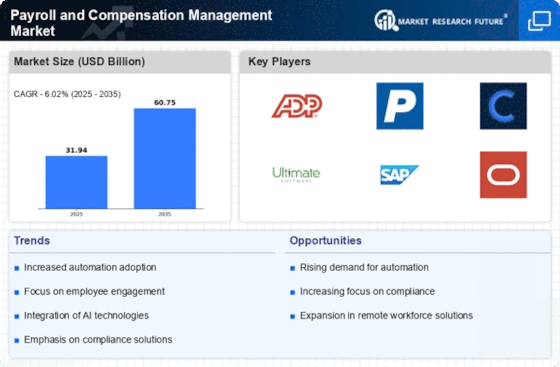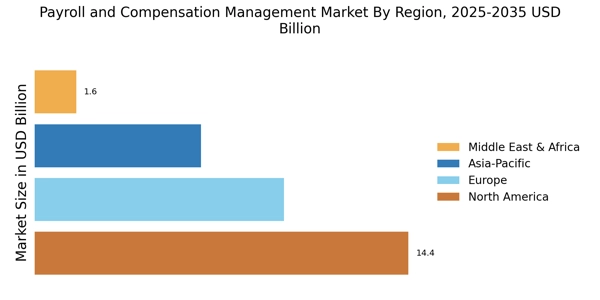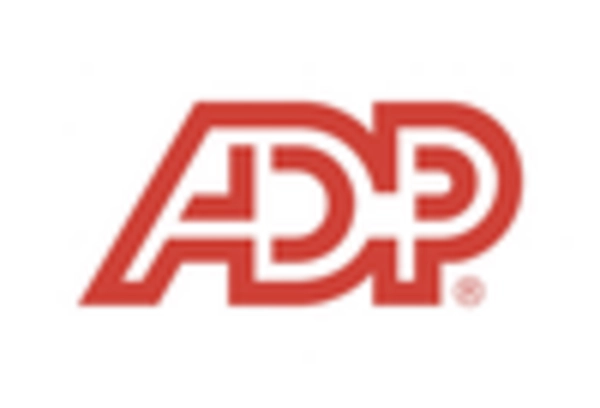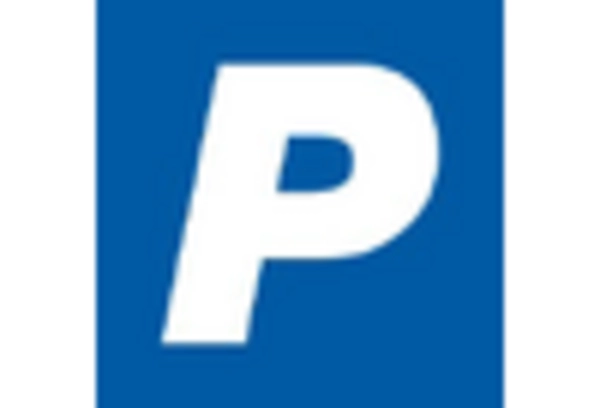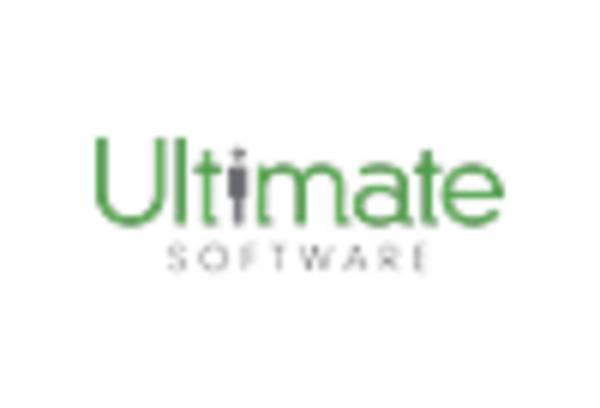Automation of Payroll Processes
The increasing automation of payroll processes appears to be a pivotal driver in the Payroll and Compensation Management Market. Organizations are increasingly adopting automated systems to streamline payroll operations, reduce errors, and enhance efficiency. According to recent data, approximately 70% of companies have implemented some form of payroll automation, which has led to a significant reduction in processing time and labor costs. This trend not only minimizes manual intervention but also ensures compliance with ever-evolving regulations. As businesses seek to optimize their operations, the demand for automated payroll solutions is likely to continue growing, thereby shaping the future landscape of the Payroll and Compensation Management Market.
Employee Self-Service Solutions
The rise of employee self-service solutions is significantly impacting the Payroll and Compensation Management Market. These platforms empower employees to access their payroll information, manage benefits, and submit requests independently. This shift not only enhances employee engagement but also reduces the administrative burden on HR departments. Recent surveys indicate that organizations implementing self-service solutions have seen a 30% decrease in payroll-related inquiries. As employees increasingly expect transparency and control over their compensation, the demand for self-service platforms is likely to grow, thereby shaping the future landscape of the Payroll and Compensation Management Market.
Focus on Fair Compensation Practices
The emphasis on fair compensation practices is becoming increasingly pronounced within the Payroll and Compensation Management Market. Organizations are recognizing the importance of equitable pay structures to attract and retain talent. Recent studies indicate that companies with transparent compensation policies experience 25% lower turnover rates. This focus on fairness is not merely a compliance issue; it is also a strategic imperative that enhances employee satisfaction and productivity. As businesses strive to create inclusive workplaces, the demand for solutions that facilitate fair compensation practices is expected to rise, influencing the dynamics of the Payroll and Compensation Management Market.
Integration of Advanced Technologies
The integration of advanced technologies, such as artificial intelligence and machine learning, is transforming the Payroll and Compensation Management Market. These technologies enable organizations to analyze vast amounts of payroll data, identify trends, and make informed decisions. For instance, AI-driven analytics can predict payroll costs and optimize compensation strategies, leading to more effective budget management. As organizations increasingly leverage these technologies, the market for payroll solutions that incorporate advanced analytics is likely to expand. This trend not only enhances operational efficiency but also provides a competitive edge in talent management, thereby shaping the future of the Payroll and Compensation Management Market.
Regulatory Compliance and Risk Management
Regulatory compliance and risk management are critical drivers in the Payroll and Compensation Management Market. Organizations face a complex landscape of labor laws and tax regulations that require meticulous adherence. Failure to comply can result in substantial penalties and reputational damage. Recent data suggests that nearly 60% of companies have faced compliance-related challenges in payroll management. As a result, there is a growing demand for solutions that ensure compliance and mitigate risks associated with payroll processing. This trend underscores the importance of robust payroll systems that can adapt to changing regulations, thereby influencing the trajectory of the Payroll and Compensation Management Market.


